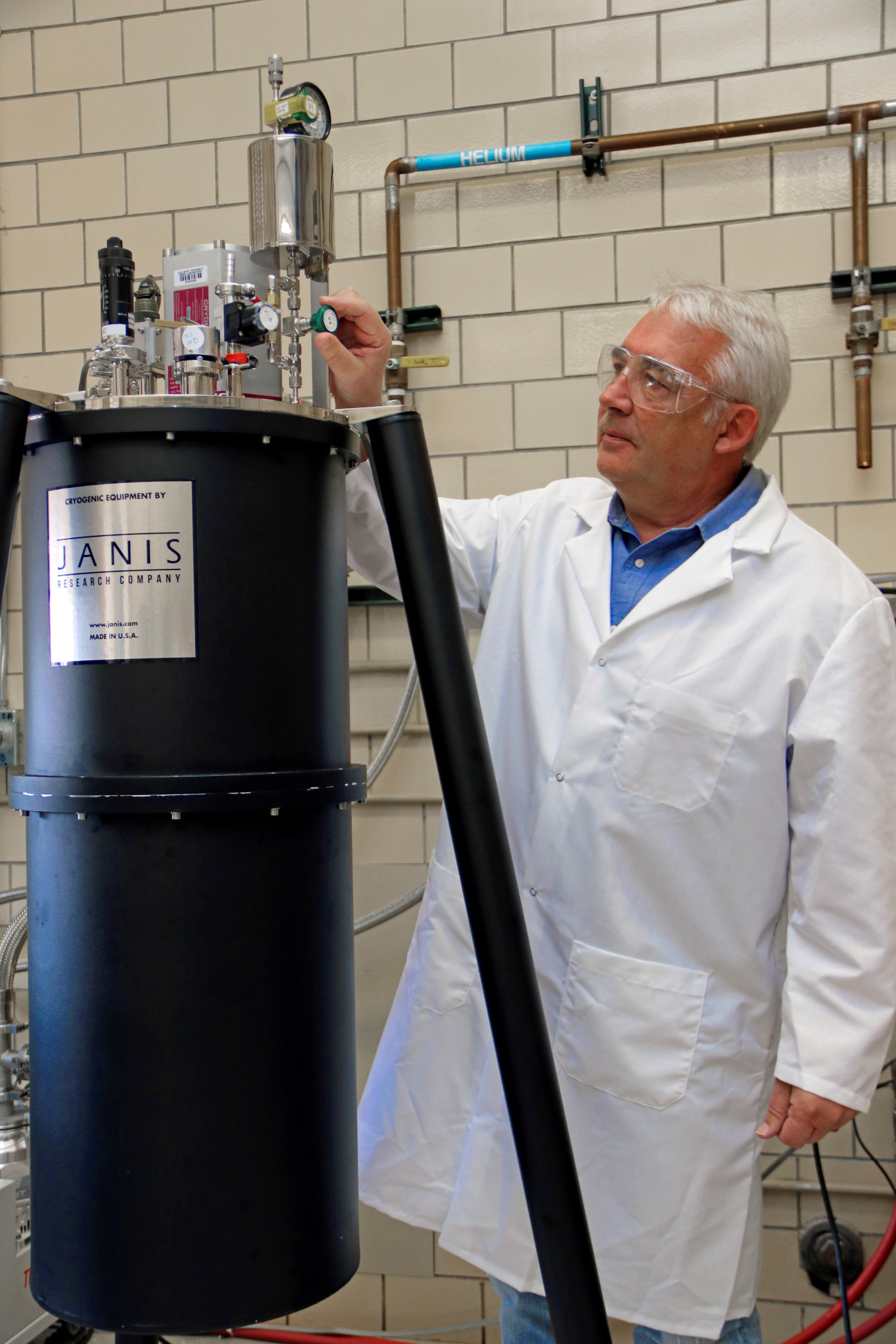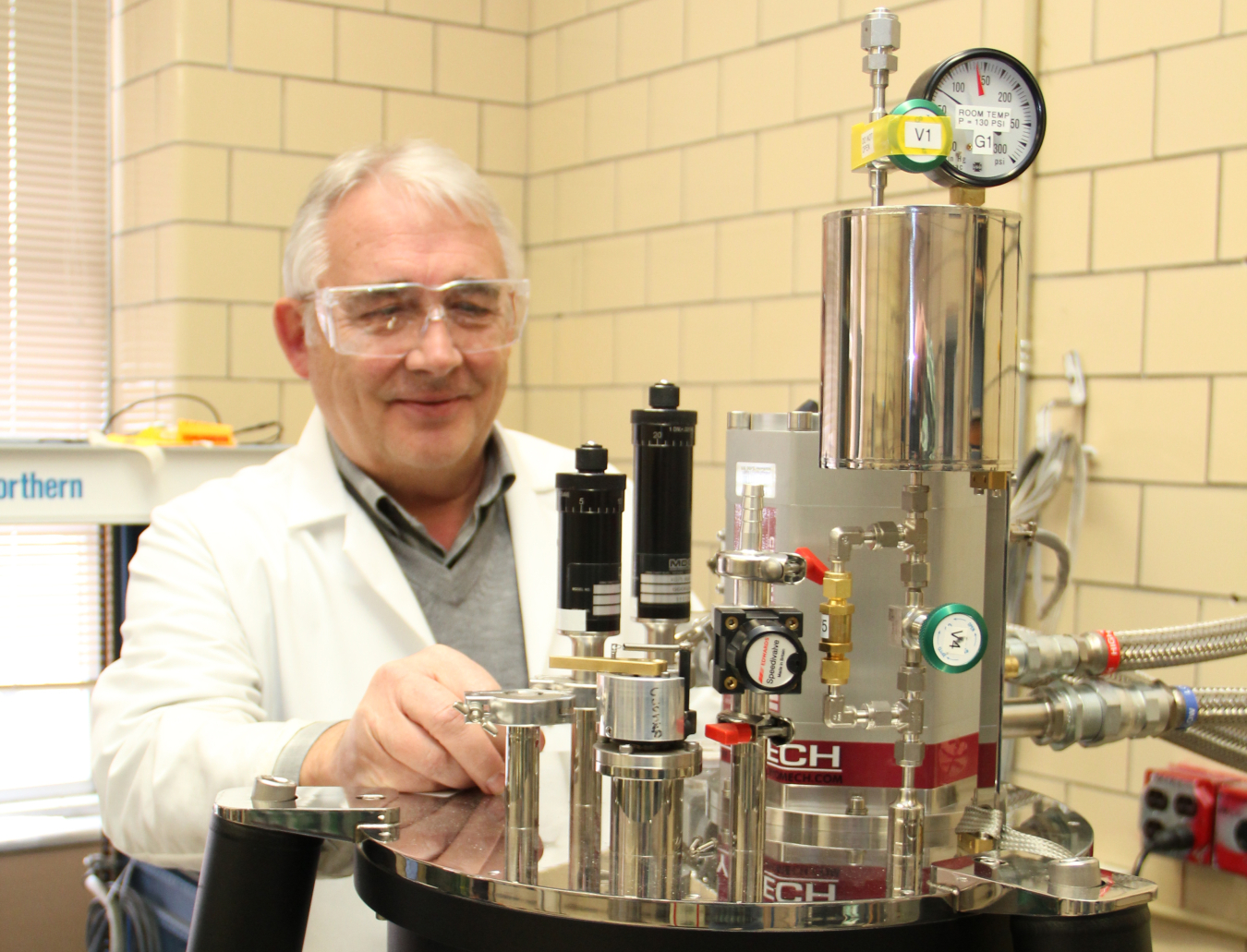
“The moment I saw the first computer I knew I would like to program it.” Dr. Vitalij Pecharsky had no question that he would be spending his career doing something in STEM.
Vitalij grew up in the former Soviet Union, spending many of his afternoons in the High School classroom and lab where his mother taught Physics, and hearing from his mathematician father about his days at the Polytech Institute. “I was always good with computers and interested in computers,” Vitalij said, and he taught himself how to code and solve problems on his computer as a hobby.
For school he wavered between math, physics, and chemistry, but the influence of his High School Chemistry teacher tipped the scales. “She was very good and made me fall in love with chemistry,” Vitalij said. “Good teachers make a huge impact, I am a testament to that.” Vitalij ended up getting a full slate of Chemistry degrees – a B.S. and M.S., then a Ph.D – all from L’viv State University in Ukraine. He began working as an Assistant Professor, and was promoted to an Associate Professor at the University.
Luckily, the world-renowned reputation of Ames National Laboratory in Ames, Iowa at Iowa State University drew Vitalij and his top skills in Chemistry over to the United States. “I knew about Ames for quite some time,” Vitalij said. “When I was back in the Ukraine where I was educated and had been working, my research was related to rare earth elements. Ames is well known for their research in rare earth elements worldwide, since the 1950s. The Ames scientists were then and remain now authorities in rare earth materials all over the world.” So, when Vitalij applied for an International Research and Exchange Board program for a ten month placement in U.S. research, he asked to be assigned to Ames Lab.
Vitalij came back full time to Ames Lab in 1993, and has a held a joint university-laboratory appointment at Ames National Laboratory and as a Distinguished Professor at Iowa State University, in the Division of Materials Science & Engineering since 1998.
Now, Vitalij is using Artificial Intelligence as a tool to speed up his discovery process to drastically reduce the electricity used on refrigeration. “When you’re looking for something new you can go through a trial and error process,” Vitalij said. “When you do AI you can significantly speed this up. I am simply a user of AI and able to recognize the value that AI can bring to my work.”

Refrigerators are in 99.9% of all U.S. households. If Vitalij and his research team do their jobs, new fridges could save as much as 30 percent in energy usage with new materials. That’s where AI comes in. The Lab’s project, CaloriCool®, aimed to design, discover, and deploy new materials that can create temperature changes for advanced solid-state refrigeration.
The team worked on finding solids called caloric materials that are made up of non-toxic and earth abundant resources that can be engineered to generate cooling when acted upon by a magnetic, electric, or mechanical force. Vitalij and his team used AI to screen “tens of thousands of potential systems”, Vitalij said, “and we were able to narrow the search to a few dozen of promising combinations of chemical elements before we experimentally prepared and fully characterized the first compound.”
“I rely on other people’s expertise who know how to deal with tremendous amounts of information that’s out there right now -- gazillions and gazillions of bytes of information -- to pick up what I need in this particular moment,” Vitalij explained. Vitalij and his team have already gotten results, filing patent applications on two caloric material compounds they’ve discovered.
Vitalij thinks anybody in any discipline and any application may have a good use of AI. “In order for it to be successful you have to have a clear goal of what it is that you are trying to get out of using it. Just blindly hoping that AI will solve all of your problems is not going to work,” he said. “There has to be a problem that is suitable to apply AI. What worked well for me was being aware of the bigger picture, every day of my life. When you keep your eyes open the success will come.”
If you’re considering a future career in STEM, Vitalij advises that you’ll want to be aware of AI and the potential applications for it. “AI will be used routinely most likely for many subjects and branches of science, and there will be times we don’t know that we are using it,” Vitalij said. “I hope that AI keeps developing and improving because we stand ready at Ames to use its new capabilities.”
Learn more about the Department of Energy's work in AI here.
